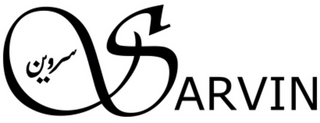What is greenwashing?
Greenwashing is an issue hugely present throughout the fashion industry. It is defined as spending more time and money claiming to be sustainably, ethically and environmentally "green" through marketing and advertising instead of implementing "green" business practices to minimise environmental impact.
The term 'greenwashing' was coined by environmentalist Jay Westervelt who defined it as a company that makes false claims to suggest they are doing more to help the environment than what they are doing in reality.
Greenwashing has become ever more common as sustainability has grown as a trend and key-value for customers. Fashion brands constantly use buzzwords such as "environmentally friendly", "eco-conscious" and "sustainable" to promote their possibly green credentials. As a customer, it isn't easy to trust this and understand whether you are making a responsible choice by purchasing a company's products or purely buying into greenwashing. In addition to this, a company's environmental actions are not always backed up by credible data. There is no clear definition of sustainability and terms such as "ethical" and "eco-friendly" have no legal meaning. As a result, companies cannot be held accountable for their actions according to the law.

Sustainability can often be used purely as a marketing tool, with the majority being across fast-fashion brands. This is done through greenwashing as major fast-fashion companies promote one sustainable aspect of their business whilst disregarding the rest, making customers feel good about themselves.
We should not just trust fashion brands' marketing that promotes sustainable, ethical and environmentally friendly practices. Instead, we should research the company ourselves by reading their website and ensuring the company is completely transparent about its supply chain.

To check for greenwashing, there are several things you can do:
- Look for numeric and concise data instead of just buzzwords; check for the company having measurable targets backed up by scientific data.
- Check that their sourcing is eco-friendly throughout. This should cover every aspect rather than just the fabrics. The sourcing methods should be organic and have certifications. We have found this website that weighs the pros and cons of every material you will come across - https://apparelcoalition.org/higg-product-tools/. There are several certifications that companies can hold, including Bluesign (to cover environmental health and safety in textile manufacture), Cradle to Cradle Certified (ensures products are fully biodegradable and compostable to be used repeatedly) and the Fair trade Textile Standard (ensures workers are protected throughout the supply chain including the right to form unions).
- Check who made the clothes. Brands that are transparent about their factory workers' treatment should outline if the workers are allowed to form unions and if they are paid a living wage.
- Only purchase from brands that have a holistic approach to their environmental, ethical and sustainable practices. These should be used throughout every aspect of their business within manufacturing, shipping, sales and design. Furthermore, these should cover workers' rights, equal pay, safe factory conditions etc.
- Look at the brand's founders. If the founder is a billionaire, the company likely uses exploitative working conditions and a wasteful supply chain to garner huge profits. Fast fashion can never be sustainable. Fast-fashion brands use large profits to invest in marketing budgets that promote their supposedly "green" collections. This sustainability add-on is likely to cover a small section of improving the exploitative and unsustainable supply chain whilst not tackling other issues such as textile waste and climate change.
- Check products labelled as 'vegan'. Whilst the product may promote animal welfare, it may still cause extensive environmental damage through other aspects of its supply chain. As well as this, many vegan alternatives are made from polluting and plastic-derived materials that are often branded as 'vegan' to be in line with current trends and consumer demands.
- Ask the brands personally via social media. Send them a DM asking for extra information about their supply chain. Brands must be held accountable and continue working towards putting people's and the planet's wellbeing before corporate profits.

Brands should not use sustainability or diversity as their prime selling point but instead as an embedded philosophy of their brand values. No company can become green overnight; it takes a lot of research and implementation to embed sustainable approaches throughout a supply chain.
Sarvin has always carried out extensive research, monitoring the practices, working conditions and processing methods of Sarvin's supply chain. Our eco-friendly collection is made from recycled cotton linters, a waste product from the textiles industry. This fibre is produced within a 'closed-loop process thus can be extracted after and reused. Our partnered fabric suppliers are the first V-Labelled textile producers in the world. They also hold the European Vegetarian Union certification, which ensures yarns are produced appropriately for Vegetarians and following the Vegan V-Label.
Discover Sarvin's eco-friendly collection
Our company continues to embrace the talent of independent designers and suppliers. Famous Persian Artist Ali Fani Salek made our first exclusive print designs. These prints were placed on eco-friendly materials to contribute towards our core brand values of sustainable, ethically conscious and environmentally friendly fashion.


We also run a Sarvin blog section which you can read here – Sarvin Blog. We use this platform to showcase our gorgeous dress collection and inform people about the importance of sustainably sourced and environmentally friendly approaches within the fashion industry. These are just a few examples of our blog articles:
- The Importance of Sustainable Fashion
- Sarvin Young Designer X Zero Waste

We all must reclaim the power of which brands receive our money and which don't; this is a step towards living in line with our sustainability values and being environmentally friendly.
At Sarvin, we strive to be completely transparent throughout our supply chain, always working towards implementing more sustainable, ethical and environmentally conscious strategies.
